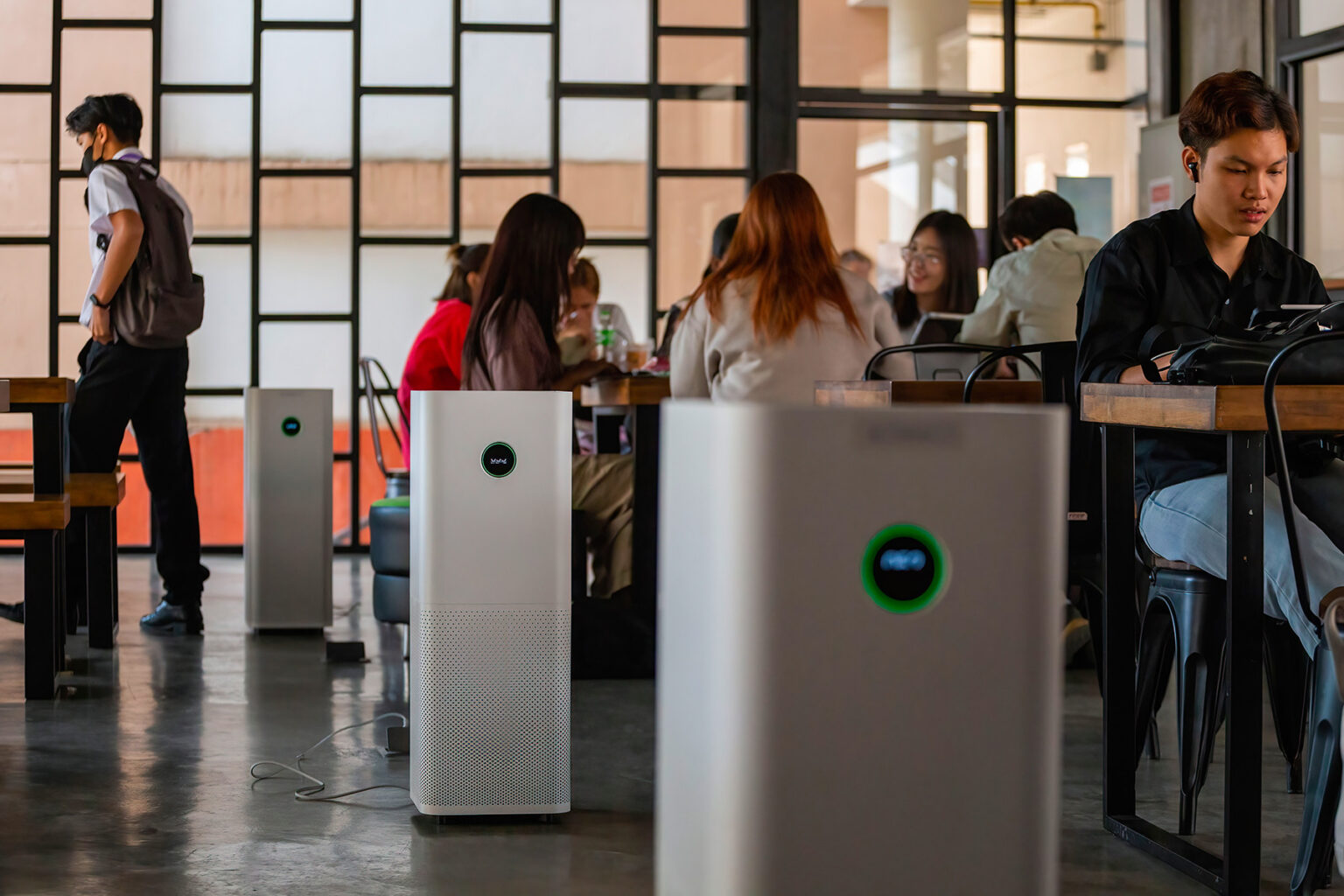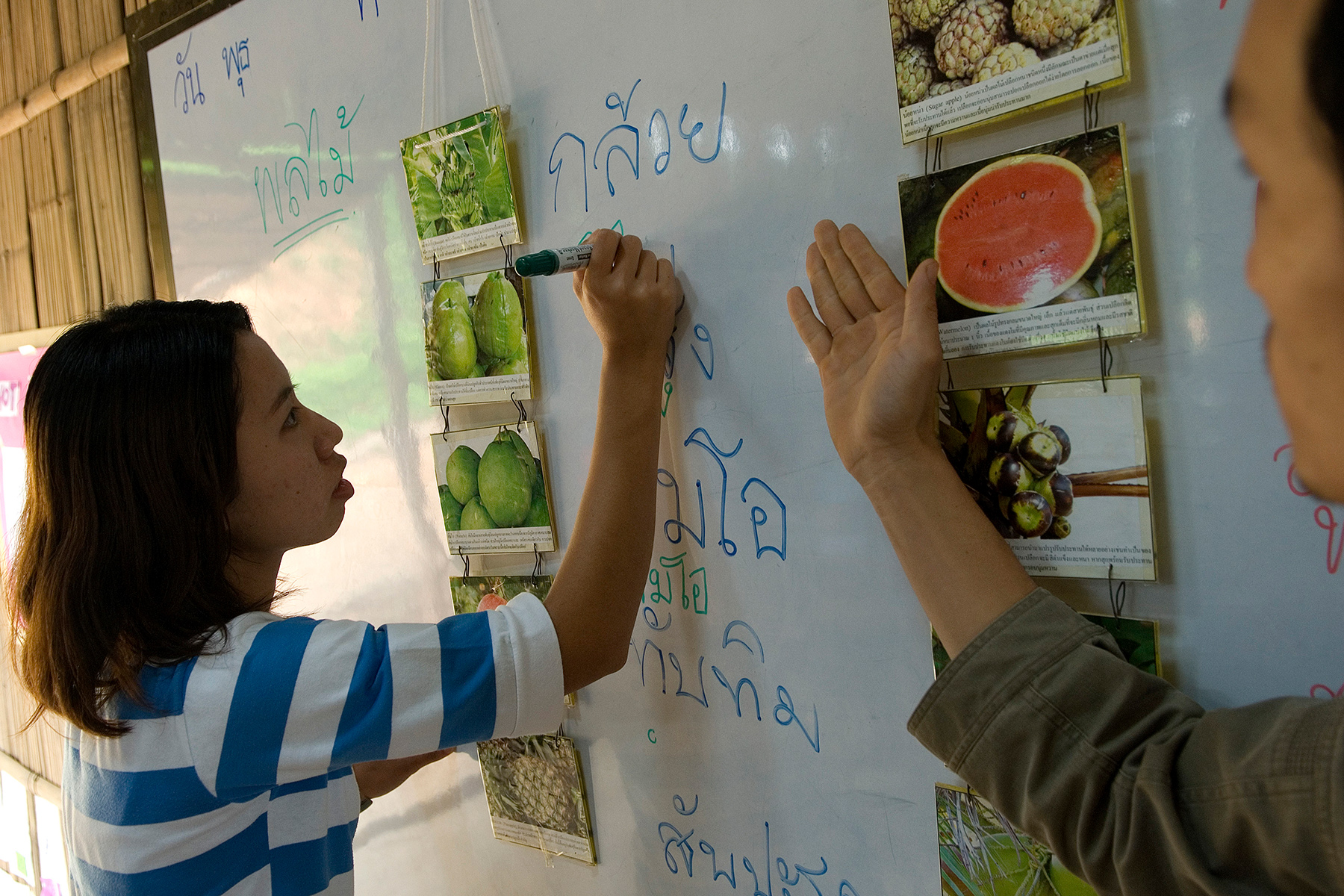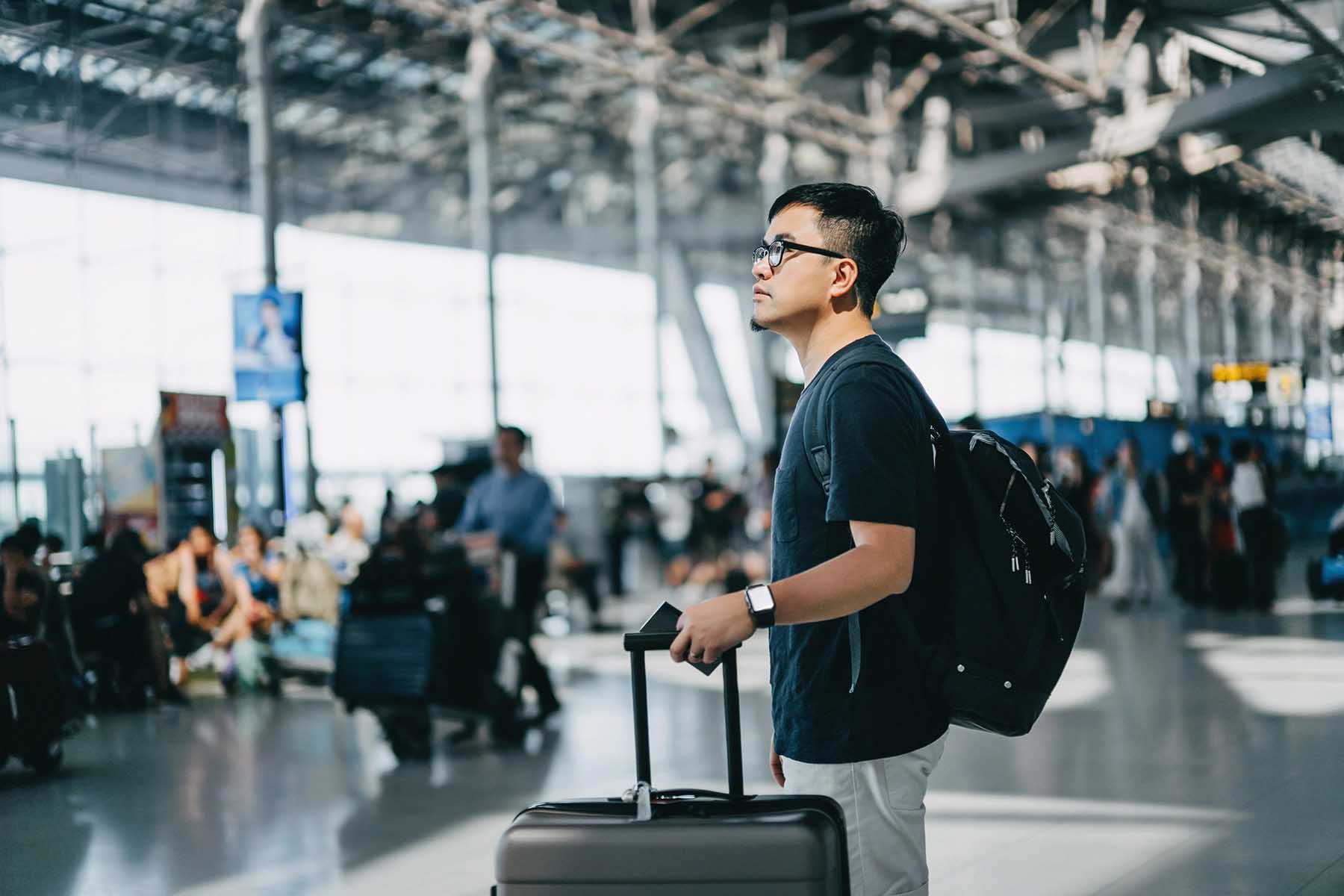Thailand is best known as a popular tourist destination with beautiful beaches, vibrant culture, and world-famous cuisine. However, the country also ranks as one of the most sought-after Southeast Asian countries for studying.
Find out more about how to study further in Thailand by exploring the following topics:
Allianz Care
Allianz Care is a world leader in providing international health insurance. Their various premiums provide professionally designed solutions for a variety of expat lifestyles. So, wherever your life takes you, make sure you have the right health protection for you and your family with Allianz Care.
Higher education in Thailand
The Ministry of Higher Education, Science, Research, and Innovation governs Thailand’s centralized higher education system. It divides university education into undergraduate, graduate, and doctoral programs. Furthermore, the Vocational Education Commission oversees vocational or technical colleges.
According to an OECD report (2021), there are over 300 higher-learning institutions in Thailand, both private and public, and around 160 of these are universities. Some focus on specific fields like science, technology, or the arts, while others offer a wide range of general programs.
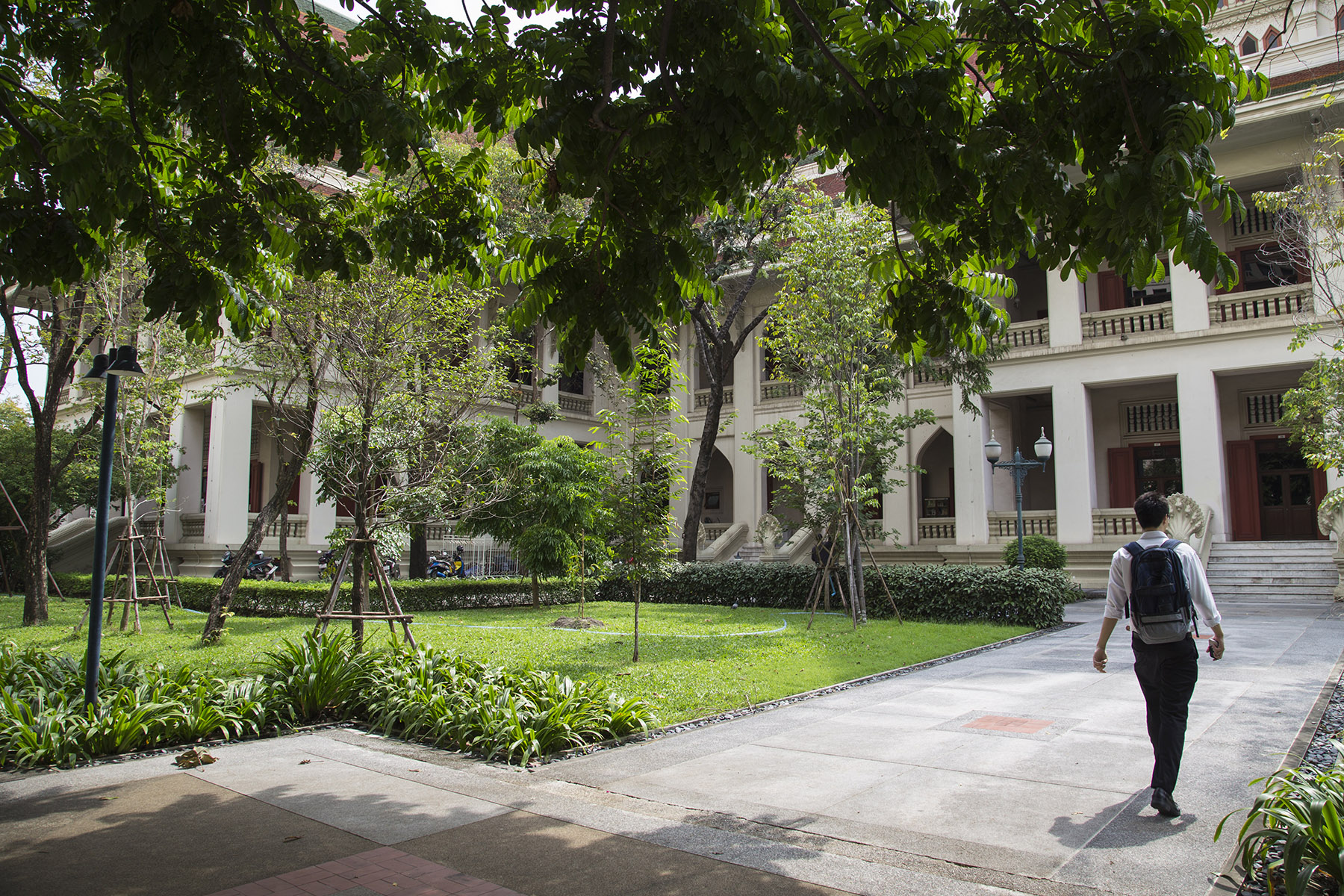
Despite the technical skills shortage in the Thai job market, many secondary students still prefer to enroll in academic programs at universities – perceived as more prestigious – instead of vocational training institutions. As such, only around 650,000 students enrolled in vocational programs, while there were almost 1.4 million university entrants in 2022.
Chulalongkorn (Chula) University in Bangkok, established in 1887, is the oldest in Thailand. The QS World University Rankings place it first in the country for its global impact based on sustainable practices, graduate employability, and international research network and 17th worldwide. Additionally, it is in the top 10 universities in Southeast Asia, followed closely by Mahidol University (11) and Chiang Mai University (21).
Typically, students enter higher education at around 18 or 19 after completing 12 years of basic education (i.e., primary and secondary schooling).
The academic year is divided into two semesters, starting in June and ending in May.
Higher education institutions mainly use Thai as the instruction language. However, some programs, particularly at the postgraduate level, are in English to draw and accommodate international students.
Indeed, Thailand’s international student body has grown significantly since 2017 to almost 35,000 (2022), drawing applicants from more than 20 countries, including Vietnam, Japan, India, South Africa, the USA, Taiwan, Bangladesh, Nigeria, and Germany.
Degree programs in Thailand
Degree programs in Thailand vary in length depending on the chosen level and field of study, as do admission requirements. However, you typically need a secondary school diploma or equivalent qualification to apply.
There are three types of degrees awarded in Thailand:
| Qualification | Description | Credits |
| Associate degree and Diploma programs | First entry-level degree programs, commonly two years in length | 60 |
| Bachelor’s degrees | Generally, four years (e.g., architecture, fine and graphic arts), five years (e.g., pharmacology), six years or more (e.g., medicine, dentistry, or veterinary science) | 120 |
| Graduate diplomas | Short-term specialized graduate programs, two semesters | 24+ |
In Thailand, popular fields of study include:
- Business Administration and Management
- Engineering
- Medicine and Health Sciences
- Information Technology and Computer Science
- Tourism and Hospitality Management
- Finance and Accounting
- Communication and Media Studies
- International Relations and Political Science
- Law
- Education
Which postgraduate study programs does Thailand offer?
In Thailand, you can complete master’s and doctoral degrees, depending on your graduate qualification.
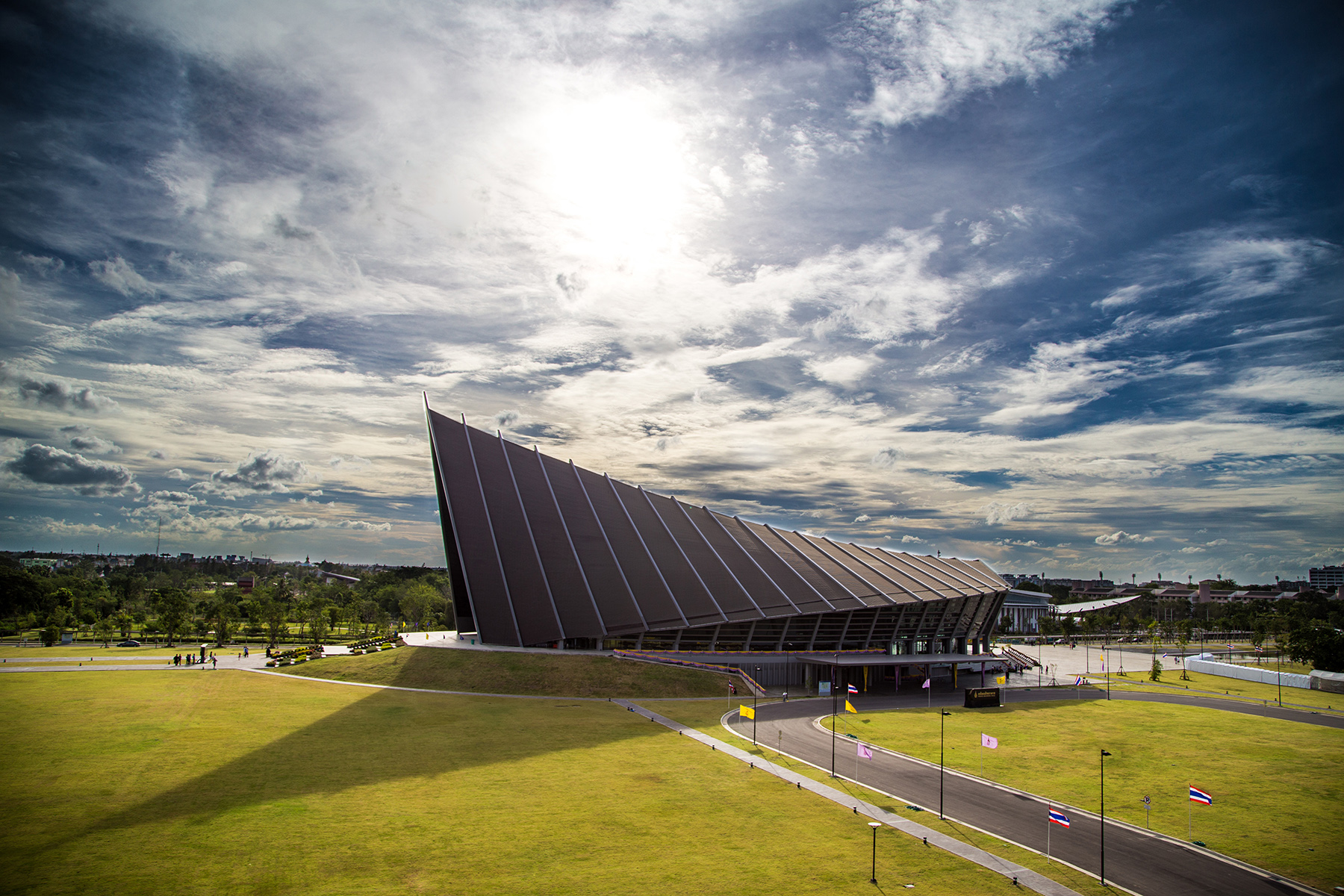
The US News Best Global University Ranking, based on several indicators (e.g., global research reputation, publications, and international collaboration), rates these Thai universities in the top five in the country for postgraduate studies:
- Mahidol University (1)
- Chulalongkorn (Chula) University (2)
- Chiang Mai University (3)
- King Mongkuts University of Technology Thonburi (4)
- Prince of Songkla University (5)
Master’s degrees
Master’s degree programs in Thailand are commonly known as:
- Master of Arts (M.A.)
- Master of Science (M.Sc.)
- Master of Business Administration (MBA)
These programs are advanced-level studies (one to two years) combined with a thesis.
Generally, to apply for a master’s program, you must hold a bachelor’s degree or equivalent from a recognized institution. Additionally, some study programs in Thailand may also require academic proficiency in the English language.
Tuition fees for master’s programs vary between institutions, programs, and the candidate’s nationality or residency status. On average, as an international student, you can expect to pay anywhere between ฿34,000 and ฿380,000 annually for a master’s degree. However, tuition fees for an MBA can be as high as ฿1.5 million.
Doctoral degrees
The highest level of qualification offered in Thailand is a Doctor of Philosophy (Ph.D.). Typically, students take between three and five years to complete it. They must do an original research project, defend their dissertation to a board of academic moderators, and publish it in a peer-reviewed journal in order to graduate.
For admission to a Ph.D. program in Thailand, you need a master’s degree in a relevant field. Furthermore, some universities may require you to pass an entrance examination to assess your research abilities and aptitude for the program.
Fees vary significantly between universities and fields of study, so it is best to get accurate rates from your prospective institution. However, these courses can cost anywhere between ฿430,000 and ฿700,000.
Specialized postgraduate programs
Many universities provide specialized postgraduate degree programs aimed at enhancing students’ professional skills within specific expertise. These programs are often tailored to particular professions, such as law, medicine, or engineering, and you can expect to study between one to two years.
The tuition costs vary depending on the university and the field of study, but fees might be slightly higher than general degrees or other postgraduate programs.
Vocational study programs in Thailand
Thailand also offers Vocational Education and Training (VET – อาชีวศึกษาและการฝึกอบรม). These programs include:
- Short-term courses
- Distance learning
- Certificate courses
- Diploma courses

For certificate and diploma programs, students would need a Certificate of Secondary Education or Certificate of Vocational Education to apply. These courses normally take between two to three years to complete.
Fields of study available at VETs in Thailand include:
- Commerce
- Trade and Industry
- Business Administration
- Home Economics
- Agriculture
- Fishery
- Tourism and Hospitality
- Textiles
- Information and Computer Technology
Thai qualifications awarded
The Thai Qualifications Framework for Higher Education – or TQF for short – is the national system that categorizes and aligns qualifications across different levels and types of education in Thailand. It helps in promoting transparency, comparability, and recognition of academic credentials, both nationally and internationally.
Therefore, the TQF aligns with international qualification frameworks, such as the European Qualifications Framework (EQF) and the ASEAN Qualifications Reference Framework (AQRF). This facilitates the recognition and comparability of Thai qualifications abroad.

It comprises six levels along with the corresponding qualifications:
- Level 1: Advanced Diploma
- Level 2: Bachelor’s Degree
- Level 3: Graduate Diploma
- Level 4: Master’s Degree
- Level 5: Higher Secondary Educational Certificate/Higher Graduate Diploma
- Level 6: Doctoral Degree
Each represents a specific set of knowledge, skills, and competencies that a student should possess upon completing a particular program. As such, the framework provides a clear progression pathway to advance from one level to another.
General requirements to study in Thailand
Visa requirements
Anyone wanting to study full-time in Thailand needs to apply for a Non-Immigrant Education (ED) Visa.
The visa is usually granted for 90 days, but you can get up to a year approved, depending on the length of your studies. If your study course is longer than a year, you can continue renewing it.
You can apply for this student visa at the Thai embassy or consulate in your home country. Of course, you need to supply the following supporting documentation:
- A passport and photograph less than six months old
- An authorized letter confirming school enrollment details
- The school or university’s acceptance or registration letter
- For primary or secondary school students, a letter from the Ministry of Education (MOE)
- For university students, a diploma or grade transcript from the previous institution
Remember that the visa requirements may vary slightly, depending on the duration of the study program and your nationality.
Language requirements
Thailand has many universities and colleges that offer programs taught in English, which would require proof of language proficiency for admission.
As such, the most commonly accepted English language tests used in Thailand are the Test of English as a Foreign Language (TOEFL) and the International English Language Testing System (IELTS). Some institutions may waive this requirement for anyone who has completed their previous education in English.
For courses taught in Thai, you will be required to show proficiency in the Thai language by taking the Ordinary National Educational Test (O-NET – แบบทดสอบการศึกษาระดับชาติสามัญ), which is administered by the National Institute of Educational Testing (NIETS).
Of course, once you’ve decided to study in Thailand, you can start preparing by enrolling in language courses to learn Thai.
Getting overseas qualifications recognized
Before studying in Thailand, it’s crucial to have your foreign academic qualifications recognized by the Thai Qualifications Framework for Higher Education (TQF: Hed – กรอบคุณวุฒิการศึกษาระดับอุดมศึกษาไทย). It is the national body that establishes guidelines for recognizing and assessing the compatibility of international degrees with Thai qualifications.
The Office of the Higher Education Commission (OHEC) is the government agency overseeing and regulating Thailand’s entire higher education system, including accreditation, quality assurance, and policy development issues.
To have your overseas qualification recognized, you need to contact the OHEC. They will send you an Equivalent Qualification Application Form to fill out and return with the supporting documents (i.e., original and certified copies), including:
- Degree/diploma and transcript of qualification that needs recognition
- Degree/diploma and transcript of previous educational qualification (if needed)
- Personal/government official ID card
- Passport (biometric page and visa)
- Certificate of first name/surname change (if applicable)
- Certificate of Marriage/Certificate of Divorce (if applicable)
A doctoral candidate must also supply an abstract of their thesis.
How much does it cost to study in Thailand?
Tuition fees in Thailand vary significantly, depending on the course and institution. For example, these can range from around ฿16,000 to ฿106,000 per semester. Even though international students – and postgraduates – will pay more, you may still find it more affordable than in countries like the UK or the US. However, it is best to contact individual universities directly to determine the exact costs.

Fortunately, local and international students can apply for grants and scholarships.
You will also need to determine your cost of living budget for:
- Visa fees and flight ticket
- Accommodation including utilities
- Internet
- Mobile phone
- Meals
- Study materials
- Transportation
- Leisure and traveling (not essential, but it is good to use the opportunity)
For example, additional costs for international students can include:
- Visa fee: Around ฿2000 per application (but check with your local Thai embassy)
- Accommodation: ฿2000–12000 per month
- Living costs: ฿4000–12000 per month
Funding or scholarships available
You should prepare for your studies under the assumption that you will have to pay tuition fees. However, there are many funding schemes available for international students wishing to study in Thailand.
Examples of funding and scholarship options available include:
| Funding | Description |
| Government | Royal Thai Government Scholarships |
| Higher Education Institutions | Scholarships and grants that cover full or partial tuition and living costs – also enquire with prospective universities |
| External | Organizations and foundations or international scholarships like the Erasmus Program |
How do you apply to study in Thailand?
There is no central body for applications from international students in Thailand; you must apply directly with your chosen institution. Admissions typically open between October and December for enrollment starting in June of the following year.
Even though each higher education institute’s application process may differ slightly, generally, they would require the following:
- Completed application form (normally downloadable or online on the institution’s website) with a non-refundable application fee
- Proof of educational qualifications (translated to English if in another language)
- English proficiency test results (if not from an English-speaking country)
- Medical certificate (as per immigration requirements)
- Complete entrance exams (depending on the degree and the institution)
- Valid passport or photo ID
- Two passport photos
In addition to the basic admission requirements, you may need to provide additional documents, such as:
- A Statement of Purpose (SOP)
- Letters of recommendation (from current school, college, or university)
- Portfolio or resume
Notably, an SOP outlines your reasons for wanting to study in Thailand and your academic objectives. Therefore, consider including the following:
- Educational background
- Reasons for choosing Thailand and relevance to your academic goals
- Research interests
- Cultural adaptability and language proficiency (or willingness to learn)
You can submit your application along with all required documents to the university’s admissions office and pay the application fee. Indeed, an admissions interview may also be part of the process, specifically for postgraduate applicants.
After submitting your application, you can usually monitor its progress through the university’s online portal or by contacting the admissions office directly. If you are accepted, the university will send you a letter of offer. You can then begin the process of applying for your student visa.
What’s student life like in Thailand?
Generally, contact hours for undergraduate students can range anything from 15 to 25 hours, depending on the course and the credits. These can include the following:
- Classes/lectures
- Small tutor groups
- Lab or fieldwork
- Group projects
- Internships
A student can also expect to spend additional time on:
- Independent study
- Research
- Assignments
- Exam preparation
Of course, postgraduate students may have fewer class hours due to more independent research or thesis work.
However, outside of the classroom, you should also take time to immerse yourself in Thai culture, explore the country, and indulge in the delicious cuisine.
Some great clubs, associations, and leisure activities you can get involved in include:
- International student associations
- Sport and fitness clubs
- Culture, hobby, and arts clubs
All of these would give you the opportunity to practice your Thai language skills, explore the local culture, learn new skills, extend your extramural interests, and make new friends.
Student accommodation options
Finding suitable student accommodations is an important aspect of studying abroad. In Thailand, there are various options available.
For example, some typical types of student accommodations include:
- University dormitories/residences: Many universities in Thailand provide on-campus dorms, allowing you convenient access to academic facilities. They are equipped with basic amenities and may include shared or private rooms, common areas, study, and recreational spaces. On average, you can expect to pay between ฿3,000 and ฿15,000, depending on whether water and utilities are included.
- Off-Campus apartments/condominiums: There are also numerous private rental options close to campus, varying in size, amenities, and rates. Some universities will have a list of nearby apartment complexes that cater to international students.
- Homestay: Staying with a Thai family offers a culturally immersive experience. This option typically includes a private room and meals provided by your host family, and, on average, you can expect to pay between ฿8,000 and ฿15,000.
Can you work while studying in Thailand?
Typically, international students on a student visa cannot be in paid employment without a separate work permit. However, in some cases, they may be allowed to work part-time for limited hours, especially if it is complementary to their field of study.
Still, it is best to consult the Ministry of Foreign Affairs (MFA) or your learning institution’s international office for specific guidelines to avoid breaching your visa requirements, which can have serious consequences on your immigration status.
Once you are legally allowed to work in Thailand while studying, the sectors that are open to employ international students typically include:
- Tutoring or language teaching
- Hospitality and tourism
- Retail and sales
- Administrative or office support
- Freelancing or online/remote work
Volunteer work
Volunteer work will allow you to contribute to local communities, learn more about Thai culture and language, and extend your skill set. For example, you can consider the following opportunities:
| Organization | Duties and skills | Organizations |
| Volunteer Work Thailand | Wildlife and marine conservation, reforestation, or sustainable farming | Environmental/conservation |
Global Vision International (GVI) | Teaching English, supporting orphanages, assisting in community centers, organizing cultural exchange activities, or taking part in construction projects | Community development |
International Volunteer HQ (IVHQ) | Shadowing medical professionals, assisting in patient care, organizing health campaigns, or supporting public health initiatives | Healthcare |
| Openmind Projects | Teaching English, organizing educational activities, mentoring, or assisting in local schools | Education |
You can also enquire with your Thai university about their local outreach programs. Alternatively, some non-governmental organizations (NGOs) may have specific student volunteer groups across a range of projects, including:
Student healthcare in Thailand
Part of your student visa requirements would include having sufficient private health insurance to cover any medical expenses, including hospital stays, treatments, emergency medical evacuation, and repatriation.
It is advisable to compare different providers to ensure it suits your needs and budget, but some reputable private health insurers covering internationals in Thailand include:
Study exchange programs
If you are interested in becoming an exchange student, there are either local programs offered by institutions such as Chulalongkorn University and Mahidol University or global exchange programs such as Erasmus+.
The Erasmus+ program is the EU’s student exchange initiative, facilitating academic collaboration and cultural understanding between Thailand and Europe.
Furthermore, you may want to contact your current higher education institution’s international office to explore potential partnerships with Thai universities for student exchange programs.
Career prospects after graduation
After graduation, you must obtain a work visa if you want to stay in Thailand and work legally. However, you would need to secure a job offer from a Thai employer before starting the visa application via the Ministry of Labor (MOL).
Before completing your studies, enquire about career services at your institution that are designed to support a student’s transition into the professional world. Services may include:
- Job fairs
- Networking events
- Career counseling
- Internship opportunities
Useful resources
- Office of Higher Education Commission (OHEC) – the government agency overseeing and regulating Thailand’s entire higher education system, including accreditation, quality assurance, and policy development issues
- Ministry of Labor (MOL) – the government department regulating employment and work visas in Thailand
- IELTS – an English standardized testing requirement for applications to higher education institutions
- Test of English as a Foreign Language (TOEFL) – another English standardized testing requirement for applications to higher education institutions
- Ordinary National Educational Test (O-NET) – the official Thai language proficiency test
- Erasmus+ – funding and exchange programs for students wanting to study in Europe and other participating countries like Thailand
- Ministry of Higher Education, Science, Research and Innovation (MHESI) – students can find scholarships available through this government department
- Homestay – browse this platform to find accommodation with a Thai family
